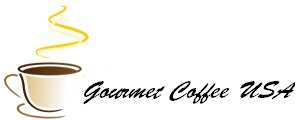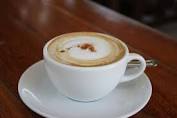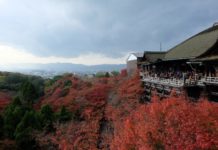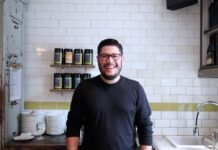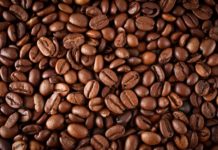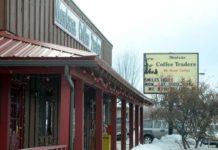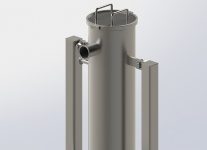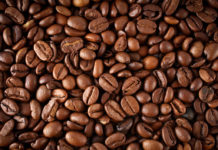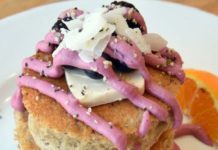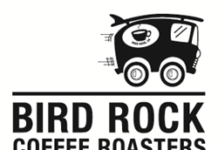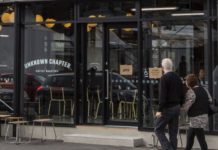Eight years ago, Ted Klopf never dreamed his dogged determination to replicate a great cup of coffee would turn into his life passion. Now, winding down a successful Air Force career and starting a growing business, Klopf, owner of Odd Duck Coffee, says the future tastes great.
Klopf and wife Andrea, originally from the northern Midwest, were vacationing about eight years ago in the costal Mexican town of Zihuatanejo. Walking through the bustling market one day, they smelled freshly roasted coffee for the first time. One taste and Klopf was hooked, determined to reproduce that richly nuanced flavor once they returned home.
“Before that, I thought coffee was coffee, you know. I drank Folgers, or whatever, like everybody else,” he said. “But that sent me down the rabbit hole to recreate what I tasted in Mexico,” he said.
There was a long period of trial and error before he realized there is more to roasting coffee than just heating up some beans. First he tried putting green, unroasted beans in a popcorn popper, but that batch tasted awful. After watching some tutorial videos online, Klopf learned that a regular popcorn popper will not get hot enough to roast the beans properly.
Next — and he definitely does not recommend trying this at home — he ripped out the thermostat in the popper and was able to get more favorable results. A small home coffee roaster was next in line and then he moved up to a commercial roaster after receiving dozens of requests from friends and family for his special brew.
Klopf learned that each coffee variety is unique and must be handled differently. One variety may need to be roasted lightly so it does not get to bitter. Another, just enough to bring out the fruity notes. Other beans may take a darker roast to enhance earthy or chocolate flavors. All of this exact chemistry is achieved with an unforgiving roasting time of only 10 to 13½ minutes.
When considering a name for his business, Klopf wanted to honor his favorite former pet, Darrell the duck. Like the coffee business, Klopf never thought he would have a pet duck, but on Dec. 27, 2010, he and Andrea were walking around downtown Oklahoma City, where he was stationed at the time, when they saw a baby duck that was struggling in a pond, fighting for its life.
“I remember the date because it was me and my wife’s anniversary. The duck had been released into the water and baby ducks don’t have the right feathers yet and cannot swim, so he was going to drown,” he said.
Klopf scooped up the freezing bird, put him in his pocket, raced to the car and placed the duck by the heater to warm up. Once the duck recovered, Klopf said the waterfowl looked at him and figured he was his new mommy, and the two were inseparable. Darrell came to live with the Klopfs for about a year and even got along with the couple’s two dogs.
When Klopf’s commanders heard about his unusual pet, he earned the nickname “Odd Duck Guy.” Sadly, Darrell met an early end at the hands — claws — of a neighborhood cat, but Klopf never forgot his feathered companion.
Klopf, Andrea and their 3-year-old daughter, Addilynn, moved to Wichita Falls about three years ago when he was assigned to Sheppard Air Force Base as a KC-135 crew chief instructor. While he has enjoyed his Air Force career, Klopf said the family would like to stay in Wichita Falls and grow the Odd Duck business when his time is up.
A very important aspect of the business for Klopf, he said, is that the beans come from organic, certified fair-trade farms.
“It’s what I believe in personally. I may be paying five times more and my margins are smaller than big businesses. But it’s what is fair,” he said.
Odd Duck offers more than 21 varieties of coffee beans and Klopf knows the back story to each of these single-origin small farms. By purchasing the unroasted beans directly, he said he can guarantee they are as fresh as possible — going from tree, to roaster, to a coffee cup in a couple months. Each bag of Odd Duck Coffee is stamped with the date the beans were roasted, usually within the past two weeks.
As more and more businesses aim to call themselves “fair-trade,” the market has broadened the definition of the term in ways Klopf believes is not so fair. He said other companies can sneak under the radar because an entire region can be considered fair-trade, even if only 20 percent of the farms actually use the practice. In the future, Klopf said he would like to take it one notch further and do direct trade, where he works with coffee growers face-to-face and can be more confident the farms are getting their fair share.
And as for that magical taste and aroma from their trip to Mexico, “Yes, we were able to get beans from that area and, yeah, I think we nailed it,” he said.
